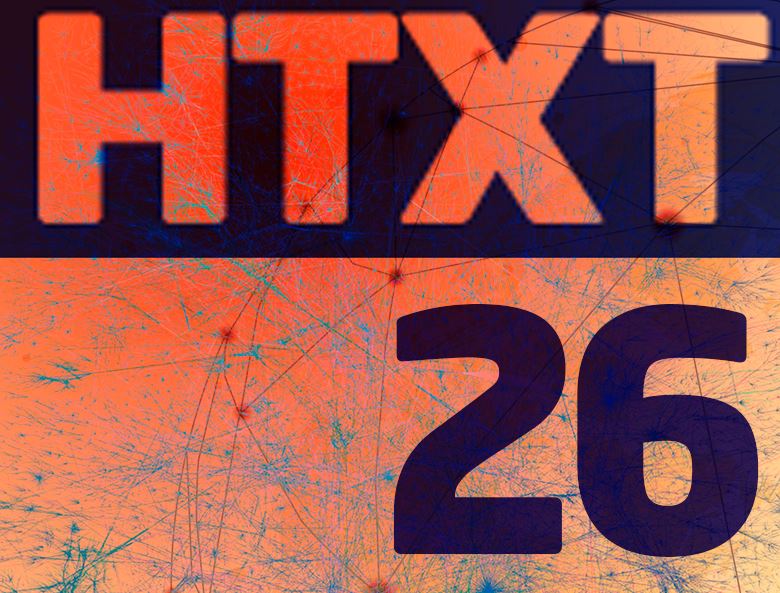The impact of artificial intelligence in communication, the subject of a special edition of UPF’s journal Hipertext.net
The impact of artificial intelligence in communication, the subject of a special edition of UPF’s journal Hipertext.net
In this special issue, some fifteen experts on communication and digital technologies from universities from around the world analyse the impact of artificial intelligence in areas of communication such as the generation of texts, images, videos and sound and the concept of copyright.

During recent months, the social debate around the implications of artificial intelligence (AI) have intensified in many areas, such as the generation of texts and images or of audiovisual content. In this context, the scholarly journal Hipertext.net, published by the UPF Department of Communication, has devoted its latest issue to “The Impact of Artificial Intelligence in Communication. Trends”. This special issue, published in May, includes some fifteen articles that deal with different implications and aspects of AI in this field, written by researchers in digital communication and technologies at research centres and universities from around the world.
Frederic Guerrero-Solé and Coloma Ballester (UPF): “this research provides the first steps in the production of novel scholarly literature dealing with the consequences of a technological development that suggests a paradigm shift in our conception of the processes of creation and communication”
The guest editors for this issue are Frederic Guerrero-Solé, a full professor of Communication Theories with the UPF Department of Communication; and Coloma Ballester, a full professor of Applied Mathematics at the Department of Information and Communication Technologies (DTIC), also at UPF. The presentation of the special issue, titled “The impact of Generative Artificial Intelligence on the discipline of communication”, introduces some of the challenges posed by AI in the field of communication and in sector-related teaching and research. In reference to the publication’s scientific articles, they manifest: “this research provides the first steps in the preparation of novel scholarly literature dealing with the consequences of a technological development that suggests a paradigm shift in our conception of the processes of creation and communication, as well as in the study of the individual and social effects of synthetic content created with generative AI”.
Texts generated with AI: effects on education, the media and research
One of the most notable topics of this issue is the impact of the tool ChatGPT to automatically generate texts. Anna Sibagatulina, a researcher in communication at the National Research University, HUSE (Russia), examines the impact of ChatGPT in the world of academia and analyses the coverage of the subject in the Russian media. Carlos Lopezosa, a researcher in information sciences at the University of Barcelona -who has also been linked to UPF-, examines how this tool can be taken advantage of responsibly in the field of science communication. Márcio Carneiro dos Santos, a professor of communication at the Federal University of Maranhão, presents the tool’s usefulness in research, based on holding interviews with the virtual agent, so that it might assess researchers in exploratory stages of research.
Artificial intelligence and the generation of images and audiovisual products
Other articles explore the changes that may be brought about by AI tools in audiovisual narratives (article by Santiago López Delacruz) and in so-called “visual literacy”, the capacity to read, write or create images (Sergio Gutiérrez Manjón and Bruno Castillejo De Hoces). Meanwhile, Jorge Caballero, a researcher in film and artificial intelligence at UPF, also examines the current and future trends in film creation and production.
AI algorithms: how to audit artificial intelligence tools
The special issue also tackles other effects of AI with a cross-cutting impact on the world of communication. For example, how our patterns of consumption (music, video...) are influenced by algorithms used by platforms like Spotify or YouTube. The risks involved are underscored, in that it might reduce the range of products to which we get access (Mariano Zelcer). There is also an analysis of the existing difficulties to audit AI systems, to monitor the transparency and reliability of their contents (Cheshta Arora and Debarun Sarkar).
The need to rethink the concept of copyright
Another, still open debate dealt with in this special, is how copyright regulation should be rethought in the age of AI. Special emphasis is placed on the need to protect the copyright of works that are being used to train AI in a variety of fields (Javier Díaz Noci).
Can the need for human expression be substituted?: the risks of AI
Other, less-dealt-with aspects of artificial intelligence are also broached, such as its possible impact on people’s emotional well-being. Àlex Valverde Valencia, a researcher of communication at UPF, whose main areas of research include the effects of the interaction between AI and humans, looks at the emotional and cognitive impact that the process of content co-creation with AI has on people. Lastly, the article by Matteo Stocchetti posits that since the creation of texts is a human expressive necessity in the face of existential dilemmas, delegating such functions to technologies may endanger the development of human kind.
Journal reference:
Hipertext.net
Number 26, May 2023.
Direct access to the special edition:
https://raco.cat/index.php/Hipertext/issue/view/31529
